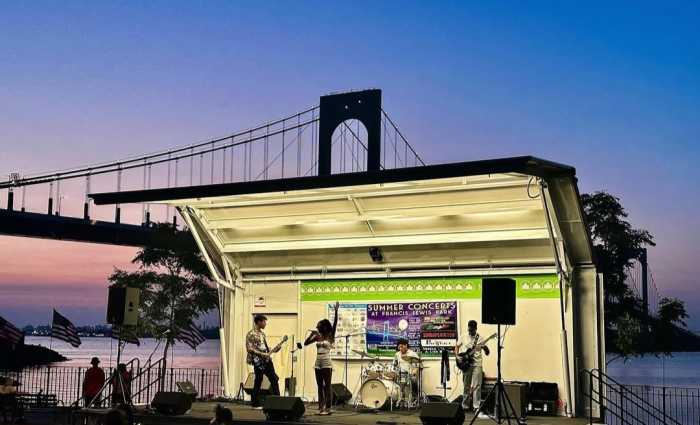By Patrick Donachie
Elected officials and representatives from the city’s Commission on Human Rights detailed the protections available to city residents during a discussion at SUNY’s Queens Educational Opportunity Center in Jamaica.
The April 14 event was geared to inform members of the neighborhood’s Muslim and Arab communities.
“At this present time, there’s a dark cloud over the nation… and people are being stigmatized and criminalized for their faith, because of who they are,” Imam Ayub Abdul Baki of the Islamic Cultural Center of New Yorksaid during the meeting’s opening. “We need to be empowered with information that will help us to combat this.”
Attendees at the event also included City Councilman I. Daneek Miller (D-Jamaica), Human Rights Commissioner Carmelyn Malalis and Derek Slaughter, a director in the agency who gave attendees a presentation on the rights and protections available to New Yorkers.
“Don’t be afraid to ask questions,” he said, “because as you all know knowledge is power.”
Slaughter spoke about the Fair Chance Act, which became effective Oct. 27. The act makes it illegal for employers to ask potential employees about criminal background histories until a job offer has been made.
He also mentioned the new “caregiver” protections enacted by the City Council Jan. 5. In the New York City Human Rights Law, there are 17 different protected classes, which Slaughter said were the most in the nation. The new bill made “caregiver” one of those protected statuses, which was defined as having “caregiving and familial responsibilities that include assisting with the care of children, parents, spouses and other family members.”
The new status will go into effect May 4, according to Slaughter.
After the discussion, the group was split into two workshops to further discusses the protections available under the Fair Housing Act and Fair Chance Act.
The panel came at a fraught time for Muslims in the United States. According to a Pew Research poll released in February, approximately half of Americans think “some” Muslims harbor anti-American views and 76 percent of Americans believe that anti-Muslim discrimination was on the rise.
At the panel, Malalis introduced herself to the groups settled throughout the conference room before giving her introductory remarks. She said the transparency these panels encouraged was all the more important in light of the current national dialogue about discrimination.
“The mission is making sure you know this is your city,” she said. “When there are so many derogatory remarks in the national conversation, we want New York to be a model of what equality looks like.”
Reach reporter Patrick Donachie by e-mail at pdona


































